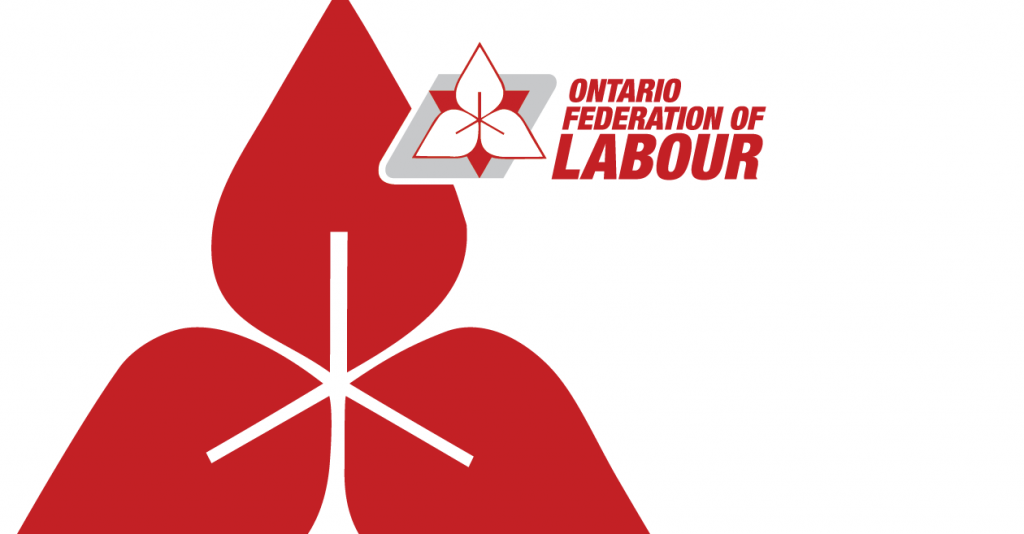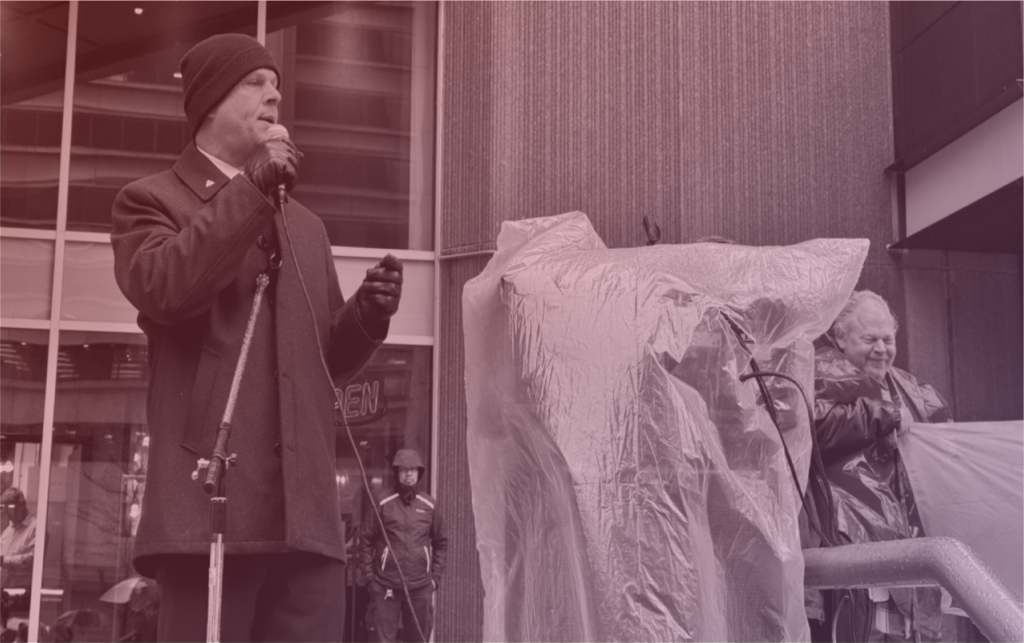
OPEN LETTER
Hon. Doug Ford, Premier of Ontario
Hon. Monte McNaughton, Minister of Labour, Training and Skills Development
Hon. Christine Elliott, Minister of Health
Dear Premier Ford, Minister McNaughton, and Minister Elliott:
As you know, Ontario is now entering a second phase of the COVID19 pandemic. As the representatives of working people from a broad range of sectors, representing more than a million Ontario workers, and advocating on behalf of all workers in the province, we wrote to you on April 3, 2020, on behalf of more than 25 organizations and individuals that endorsed this call, to outline the role that Ontario’s workers’ compensation system should be playing in pandemic response. Minister McNaughton responded on May 19, 2020 as follows:
With respect to your recommendations to expand coverage and include a legislative presumption for work-relatedness of COVID-19 claims, the Ministry is closely monitoring the WSIB’s approach. Our government has made clear that every option is on the table, and that we are prepared to take any actions necessary to support Ontario’s workers.
We have received no further communication on these matters from the Minister since then. We have also seen no change in the WSIB’s approach regarding the proposals we raised on April 3, 2020 on matters within their jurisdiction.
Therefore, as we are now clearly entering into the second wave of the pandemic, we are contacting you again, to request urgent action by your government and by the WSIB.
As you know, COVID-19 has confronted our province with unprecedented challenges. Our members have risen to these challenges and are providing, essential services in healthcare, transportation, retail, critical infrastructure construction and other sectors vital to the health of Ontarians and the functioning of economy. We have come together to call on you to ensure that just as we are there for our province, you are there for us.
This letter focuses on the need for Ontario’s workers’ compensation system to step up and contribute fully to the COVID-19 response. We need you to understand the vital role that workers’ compensation plays for our members as well as for thousands of vulnerable, non-unionized workers performing essential services. These workers are risking their health and for some, their lives, by carrying out their work responsibilities. To do this, they must be confident that if they become sick from COVID-19 or must be isolated due to occupational exposure to this virus, they will have the full protection of the workers’ compensation system.
We are offering to step up to work with you on whatever is necessary to make these changes effective on the ground.
We are proposing as follows:
- Expanding coverage to all workers and volunteers who put themselves in harm’s way.
Unfortunately, many workers who may put themselves at risk by contact with the public do not have workers’ compensation protection, either because they work in a non-covered sector of the economy or have been treated as “independent operators”. We are proposing that the Ontario government amend Schedules 1 and 2 of the Workplace Safety and Insurance Act (“the Act”) to include, for purposes of the COVID-19 outbreak, any sectors not currently covered but which have been deemed essential. This could be done by Cabinet in short order. As well, to ensure that all workers who come in contact with the public are protected, WSIB should use the broad language of the s. 2(1) definition of “worker”, paragraph 9, to deem all persons who come into contact with the public while performing their work duties during the COVID-19 outbreak to be “workers” for purposes of the WSIA. This would cover Uber drivers and others in the gig economy.
- Extending protection of the Act to workers who must be isolated or quarantined because of work exposures
Currently, WSIB will only extend workers’ compensation to workers with actual COVID-19 health conditions, but not to workers required to be isolated/ quarantined due to work exposures to the virus. We are proposing that WSIB cover these situations as well, using the preventive removal language in s. 2(1) of the Act.
- Extending protection to workers with health conditions which are likely COVID-19 but not verified by testing
Some workers are developing COVID19 symptoms but are never tested due to limited testing capacity. Under these circumstances, WSIB should presume that these workers have COVID-19.
- Streamlining the adjudication of COVID-19 workers’ compensation claims and protecting appeal rights
The WSIB is currently adjudicating COVID-19 claims case by case, without using the presumptions available for occupational diseases under the Act. Anthrax and tuberculosis are already in Schedule 3 of the Act and in our view the case to include COVID-19 in the Schedules is even stronger given the urgency of this situation. It is vital that workers who are putting themselves on the line for the rest of us should be confident that they will receive swift compensation.
So, we are proposing to add to Schedule 4 of the Act, an irrebuttable presumption of work-relatedness for health conditions related to Coronavirus/COVID-19, for all workers who come into contact with the public. This category should be broadly interpreted to include not just health care workers and first responders but all other workers who come into contact with the public, such as childcare workers, transit, retail and delivery workers and frontline public sector workers. We are also proposing a rebuttable presumption of work-relatedness in Schedule 3 for workers in sectors deemed essential but who do not come into contact with the public (e.g., cleaners, essential construction workers). Cabinet could make these changes in a few days if it wished to do so. British Columbia and numerous US states have already moved forward with various types of presumptions.
- Taking into account the impact of COVID-19 on existing injured workers and occupational disease victims, including their access to healthcare and vocational rehabilitation.
The WSIB should pay loss of earnings benefits to injured workers whose health care or vocational rehabilitation programs have been delayed, or who are unable to participate/work due to COVID related risk factors or circumstances, until the COVID-19 outbreak has receded, and these programs can start up again and injured workers can participate again. WSIB should also fully take into account the impact of the current employment market on the realistic job prospects of injured workers and stop deeming them capable of earnings from jobs that basically do not exist for them.
- Ensuring that injured workers can maintain physical distance and receive necessary support.
Many injured workers and occupational disease victims are already in a physically vulnerable state due to their disabilities. They may need additional supports to get through these difficult times. WSIB should take a broad and generous approach to supporting any special needs that injured workers and occupational disease victims might have as a result of COVID-19. This includes proactive outreach to severely injured workers and occupational cancer victims to help them get any additional supports that they might need.
- Communication and engagement, especially to protect the most vulnerable workers.
We are proposing that the WSIB and Ministry of Labour, Training and Skills Development engage with the worker community and other partners to broadly communicate the supports available to workers affected by COVID-19 exposure at work and to ensure that they can access benefits and services.
There is much talk about the fact that “we are all in this together”. And we, in the labour movement, strongly support this. WSIB needs to continue to make every effort to put benefits in the hands of workers in the province who need them. We offer our full collaboration in making these changes happen. We look forward to receiving a response and hearing about your action plan on these very important issues.
Yours truly,
PATTY COATES
President


